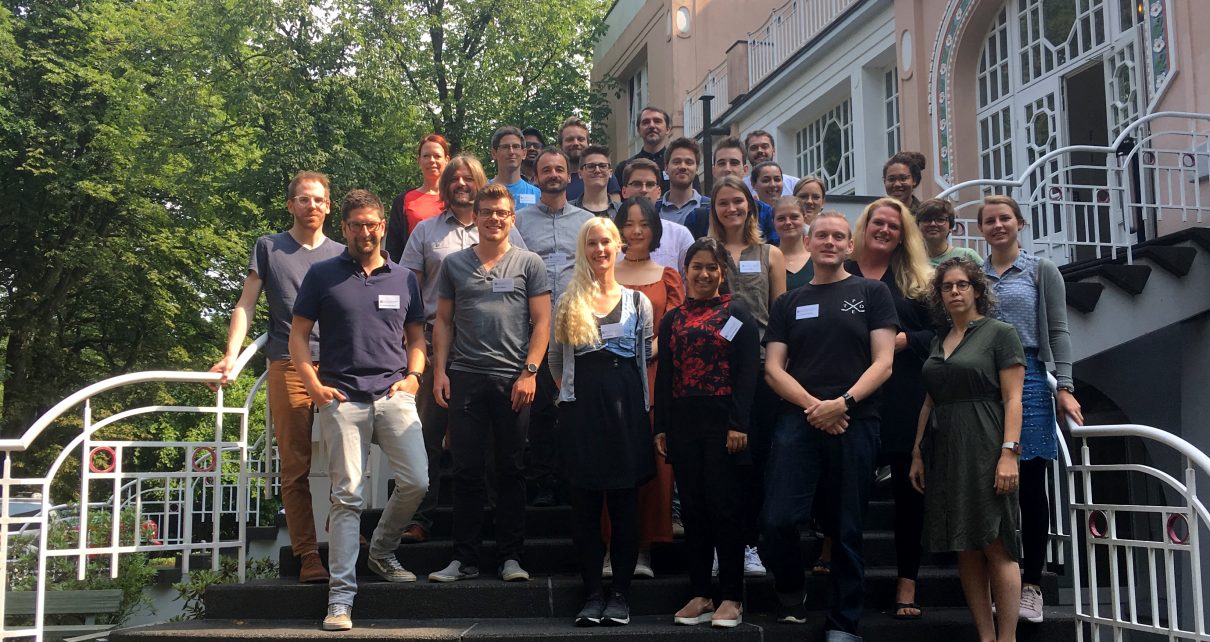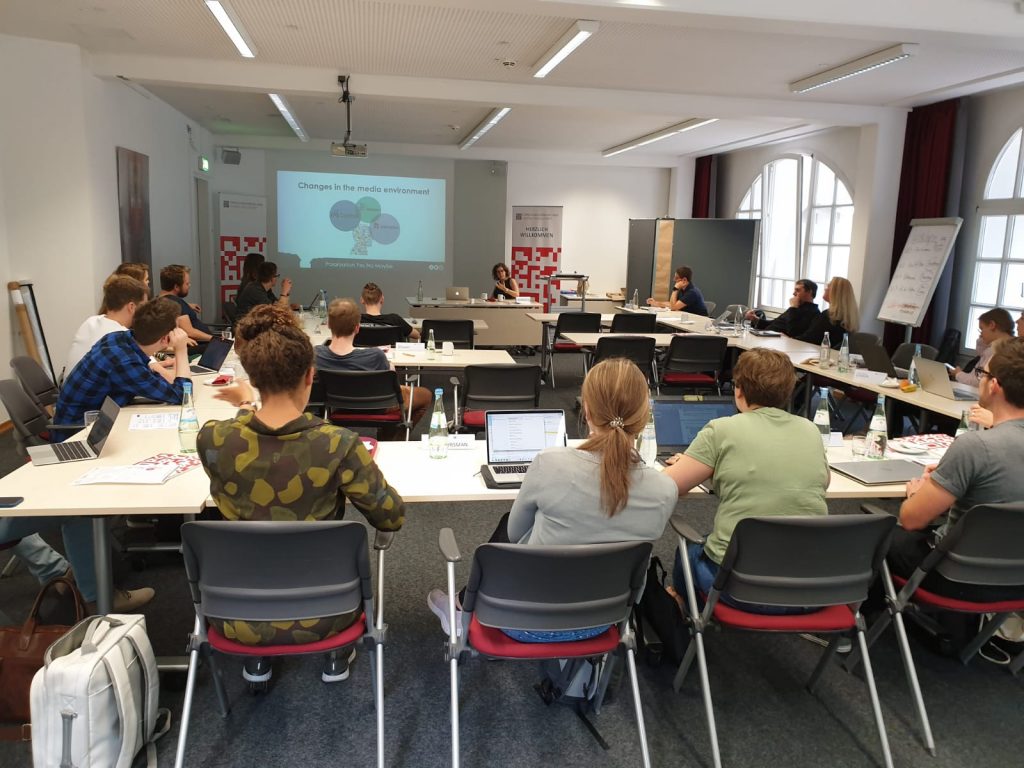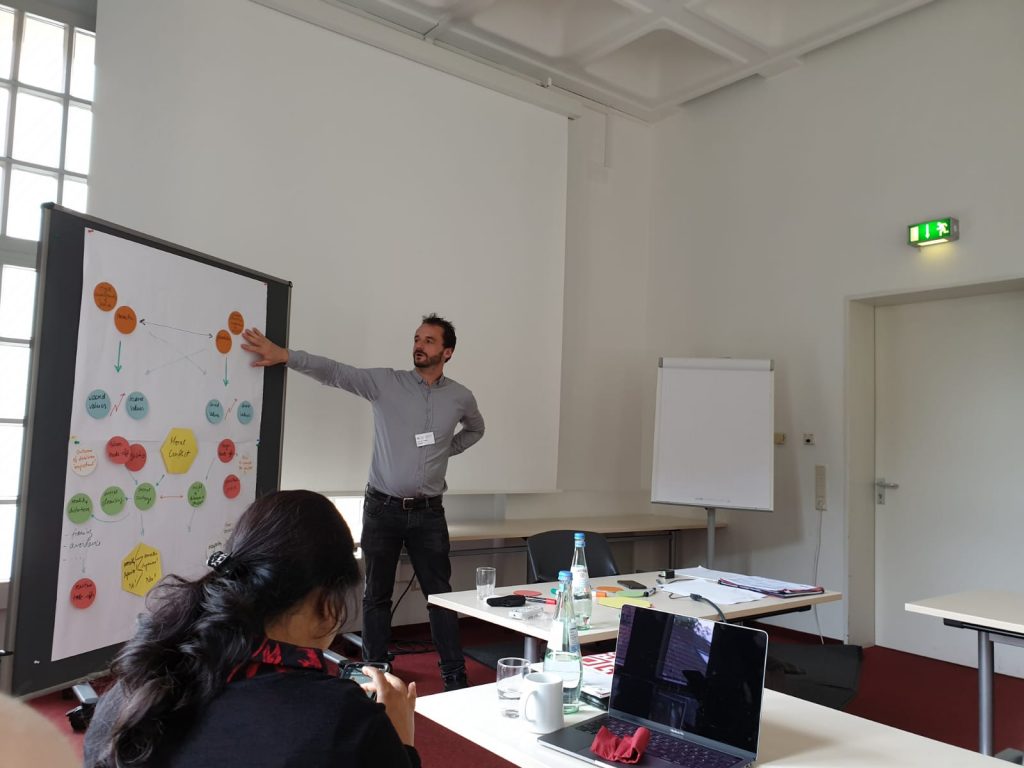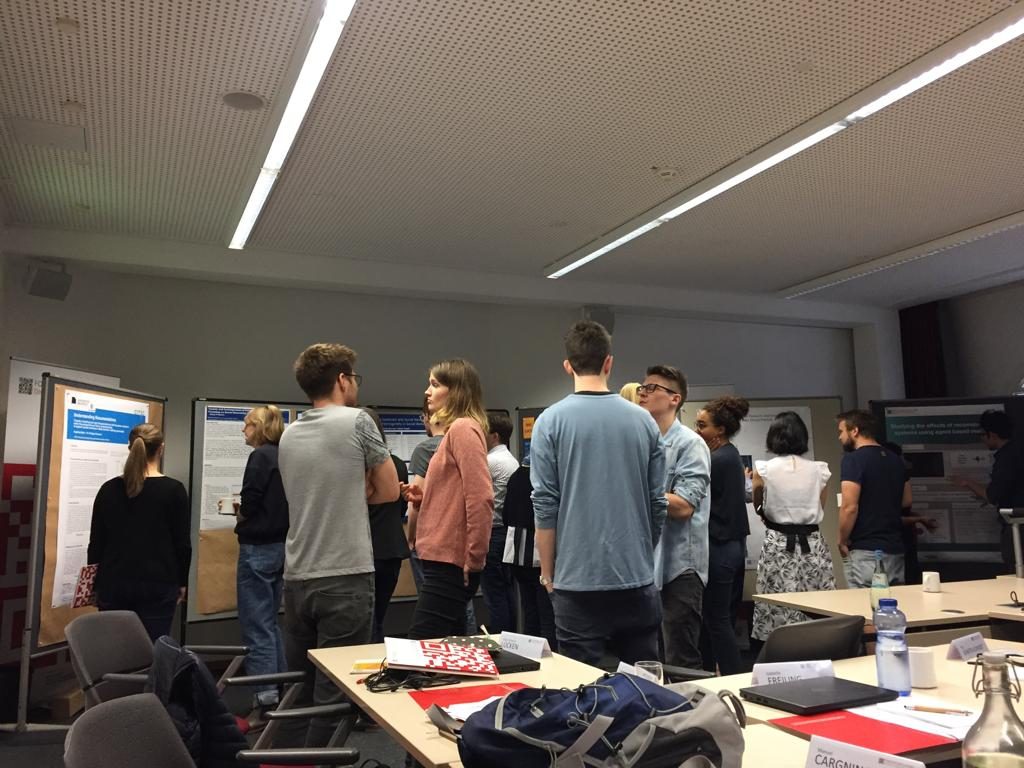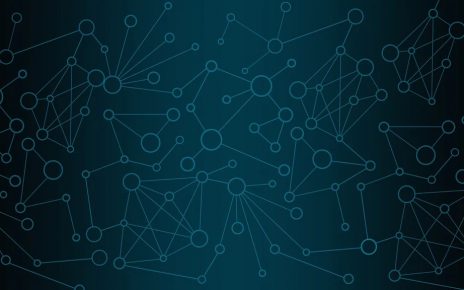Vom 15. bis 19. Juli 2019 fand die erste internationale Summer School des Forschungsverbundes NRW Digitale Gesellschaft mit dem Thema „Social Media as a Digital Agora for Political Arguments, Opinions, and Ideas“ in der Wolfsburg in Düsseldorf statt. Ausgerichtet und organisiert wurde die fünftägige Summer School gemeinsam mit Prof. Dr. Nicole Krämer (Universität Duisburg/Essen, PI in Tandem 6), ) und Dr. German Neubaum (Universität Duisburg/Essen, Leitung der Nachwuchsgruppe Digital Citizenship in Network Technologies).
Ankündigungstext der Summer School:
In ancient Greece, a central part of social life took place at the agora. At this physical venue, citizens did not only trade all kinds of commodities, but also deliberate about important societal issues and politics. Therefore, the agora can be considered as the birthplace of democracy. Today, social media seem to bring this ancient Greek idea into a digital world: Services such as YouTube, Facebook, and Instagram enable citizens not only to publish political thoughts or initiatives in the form of videos, pictures, or status entries but also to have civically relevant interactions with other citizens at large scale. While this might be seen as a potentially enriching tool for democratic societies, nowadays, it also has to be discussed in the light of less desirable observations such as uncivilized exchanges (“hate speech”), the spread of misinformation (“fake news”), the presence of manipulative entities (“social bots”), or communication in ideologically homogeneous spheres (“filter bubbles” or “echo chambers”).
Empirical evidence in the field of computer-mediated political communication has grown in the last decades. Still, it remains a pressing need for researchers to systematically identify the circumstances under which politically relevant communication over network technologies can become beneficial versus detrimental for individuals and societies. What are the boundary conditions under which social media serve as marketplaces wherein citizens can contribute to deliberation and rational exchanges of arguments? Which factors influence whether this can lead to better informed (political) decisions? Which kind of citizens benefit most or least when using social media in political contexts? What are long-term consequences of political discourses via social networking platforms? How can computational methods be used to understand the mechanisms within these platforms better and to improve the conditions for the user? What are ethical implications of political deliberation online and how can we come to a well-grounded normative stance? Answering these questions clearly demands a multi-disciplinary approach combining communication studies, psychology, computer science, social media analytics, ethics, and political science. This Summer School, hosted by the Forschungsverbund NRW Digitale Gesellschaft and organized by the University of Duisburg-Essen and University of Bonn, intends to bring these disciplines together and to offer a fruitful setting for senior and junior scholars to jointly work on current questions of political communication in computer-mediated contexts.
Short Program:
- Lecture 1: Patricia Rossini: Beyond Deliberative Norms in Online Political Talk: The Role of Incivility and Intolerance
- Lecture 2: Christoph Bieber: The End of the Political Public as We Know it? Modes of Campaigning during the Midterm Elections 2018
- Lecture 3: Gina Chen: If Incivility Means Everything – It Starts to Mean Nothing
- Lecture 4: Tobias Rothmund: Temporal and Interpersonal Dynamics in the Formation of Opinion-Based Political Facebook Groups – The case of the German “Refugee Crisis“
- Lecture 5: Shira Dvir-Gvirsman: Political polarization—Yes? No? Maybe?
- Lecture 6: Homero Gil de Zúñiga: Social Media Simultaneous Hydraulic Effects Over Democracy
- Workshop 1: Annie Waldherr: Introduction into Agent-Based Modeling with NetLogo
- Workshop 2: Patricia Rossini: Social Media Research Methods: An introduction using R
- Workshop 3: Gina Chen: What is Online Incivility?
- Workshop 4: Karsten Weber: Ethics in Social Media and in Social Media Studies
- Workshop 5: Shira Dvir-Gvirsman: Social media as an instrument of destruction: How social network sites affect the democratic process
- Workshop 6: Torsten Zesch and Björn Ross: Hands-on social media analytics: Analyzing discussions on Wikipedia
- Workshop 7: Tobias Rothmund: Can digital communication tools be useful in settling moral conflicts in society?
- Workshop 8: Homero Gil de Zúñiga: The influence of digital communication on socio-political attitudes and behaviors: Analyzing multi-country survey data
